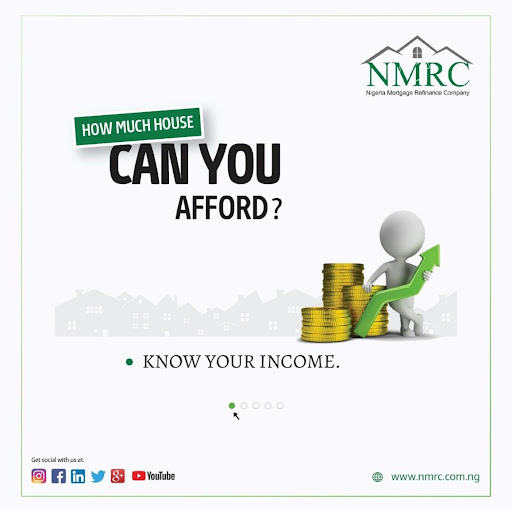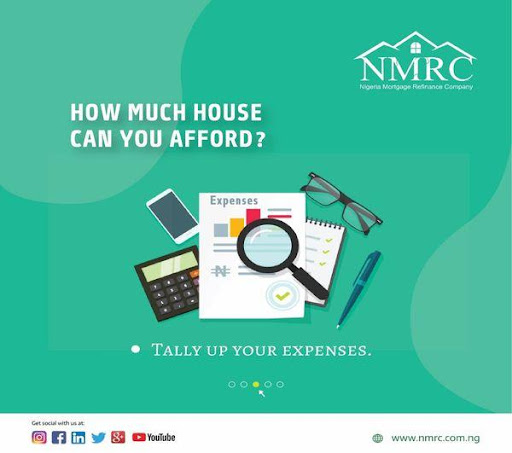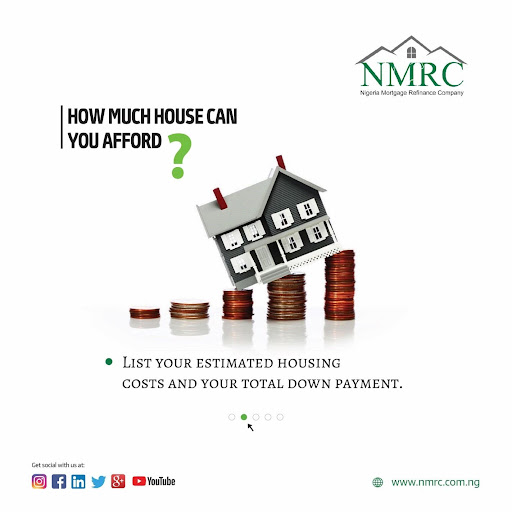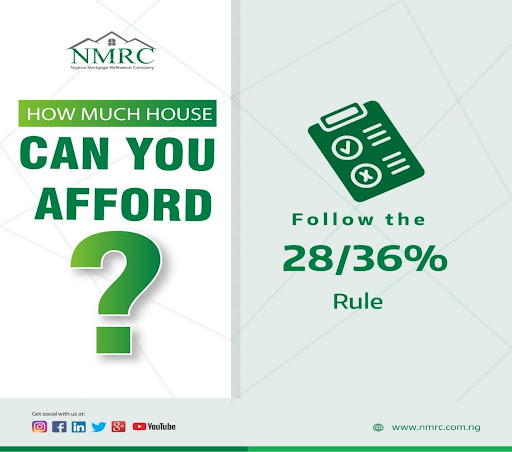NMRC’s mortgage refinancing operations have enhanced access to affordable homeownership through the provision of long – term liquidity to Mortgage Lenders. Mortgage and Commercial Banks now offer longer term mortgages with tenors of up to 20-years at significantly lower interest rates.
However, owning a home using a mortgage loan is a huge long-term financial commitment. It is therefore wise to shoot for a house with a price tag that you can afford to pay conveniently alongside your recurring living expenses.
1. Know Your Income
For most Nigerians, a house is likely to be their most significant purchase. So, figuring out the financial cost is an essential first step in the homebuying process. It all starts with a good knowledge of how much income you earn and spend each month. This includes all your revenue streams and essential expenditures. This exercise will lay the foundation for a proper and objective understanding of your financial capacity and the mortgage loan that you can afford to access and repay within a stipulated timeframe.

2. Tally Your Expenses
Next is to tally your expenses. Here you list all the money and living expenses that go out every month. It is important to be accurate about how much you spend because this is a significant factor in how much you can afford to pay on the house.
Bottom line: Be honest about what you earn, spend, and what you can afford.

3. Get a Sound Knowledge of Homeownership Costs
The next step is to list all your estimated homeownership costs and your total down payment. This includes annual property tax, homeowner’s insurance costs, estimated mortgage interest rate, and the loan terms (the agreed or negotiated tenor to pay off your mortgage) e.g. it could be 10 years, 15 years, or 20 years.

4. Know the Golden Rule of Mortgage Lending
Once you decide to buy a home using a mortgage, you should know the 28/36 golden rule of mortgage lending. Lenders use the 28/36 rule to measure borrowers’ ability to afford their mortgages based on their households’ gross monthly income, monthly housing-related payments, and all other monthly debt payments.
The 28/36 rule states that a household should spend no more than 28% of its gross monthly income on total housing expenses and 36% on all debt, including housing-related costs and other recurring debt services.
Let’s start with the first half of the rule: a household should spend no more than 28% of its gross monthly income on housing expenses. This is the “front-end ratio.”
Housing expenses are summarized as PITI: monthly principal, interest, property taxes, and insurance payments.
So, suppose you expect to pay N70,000 in monthly principal and interest, in property taxes and homeowners insurance payments. In that case, you must have a gross monthly income (pre-tax income) of at least N250,000 per month (N70,000 / N250,000 = 28%) to qualify on the front-end ratio.
The second half of the rule is the back-end ratio. To get this ratio, you divide all recurring monthly payments on debt by a household’s gross monthly income. The back-end ratio includes all debt: PITI payments on your mortgage, credit cards, car loans, student loans, and other personal loans. All these expenses must not exceed 36% of your gross monthly income, in this case, N90,000 (N90,000/250,000 = 36%).
Sticking with this rule ensures you only take a mortgage that you can pay conveniently.
Slight Variation to the Rule: Currently the Nigeria finance industry limits servicing of all debts to 33.33% of gross income.

